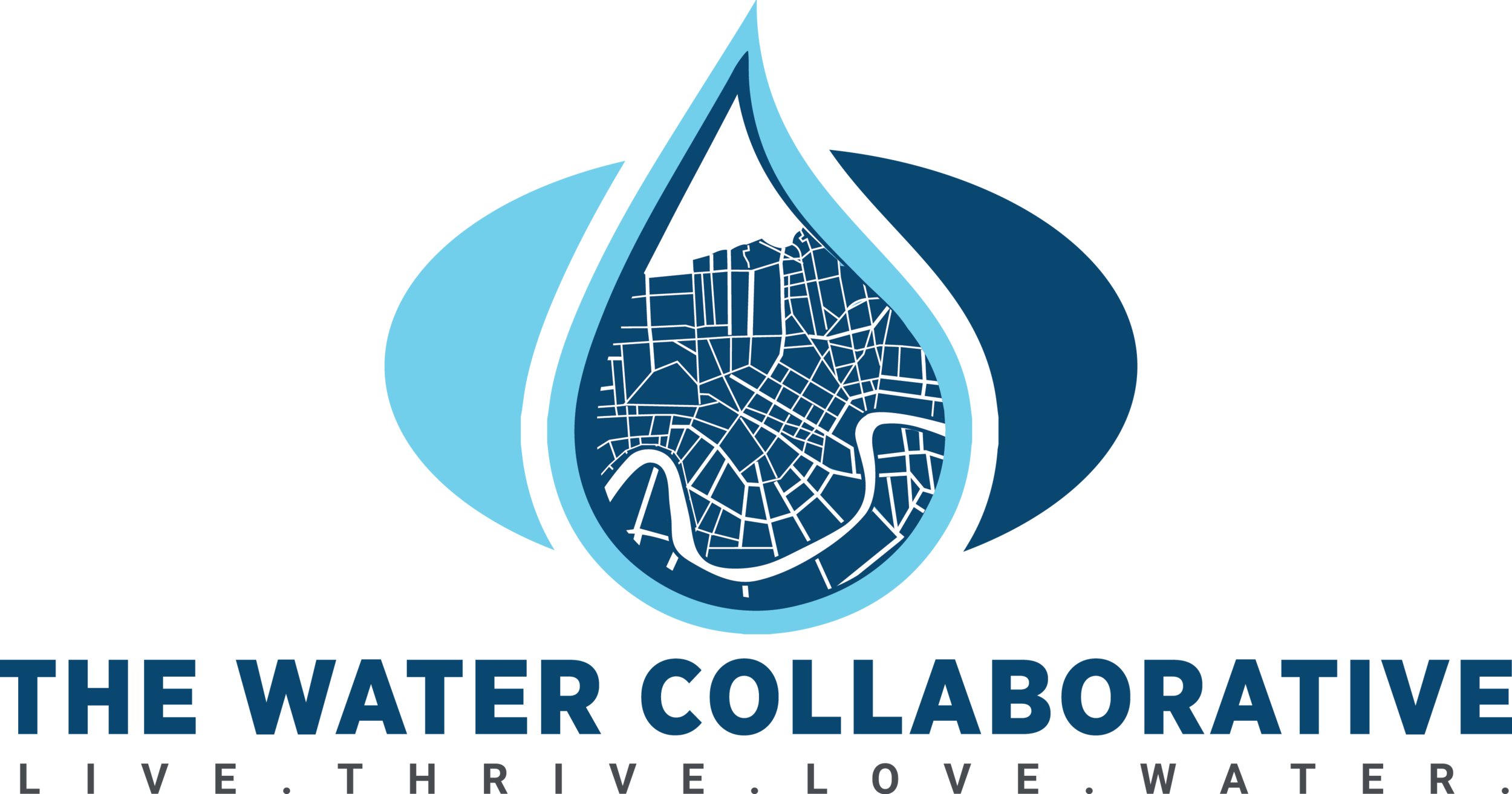Saltwater’s Effects on Lead and Plumbing
By: Tyneisha Bradley, Fellow, M.S.P.H. Environmental Health Sciences Candidate at Tulane University
Salinity refers to the level of dissolved salt found in water, commonly known as saline water. Saltwater intrusion is the process by which saline or saltwater infiltrates and mixes with sources of freshwater, often impacting groundwater or municipal water systems. As saltwater intrusion progresses and makes its way into municipal water systems, the possibility of corrosion becomes a significant concern. This corrosion is particularly important in areas where water systems use lead pipes due to lead's high sensitivity to saltwater. There is no particular salinity level at which lead will begin to corrode in pipes, as it depends on the multitude of variables involved in water systems. However, high salinity is considered between 10,000 parts per million (ppm) and 35,000 ppm in freshwater. It is important to note that salinity is not only found in waters from the ocean, but can also be found in older sources of groundwater or remnants of larger lakes (U.S. Geological Survey, 2018).
Under the current standards of the Environmental Protection Agency, you would expect to see a higher occurrence of lead corrosion in drinking water systems when Chloride levels exceed 250 parts per million.
U.S. Army Corps of Engineers.
The Impact of Saltwater on Lead
Saltwater can have damaging effects on lead due to its chemical properties and the conditions it creates when mixed with water. Sodium chloride (salt) in water, in conjunction with moisture and oxygen, can corrode lead even worse than rust. When combined, these elements eat away at the lead pipes or cause corrosion, which ultimately leads to the pipes becoming weak and falling apart (Rodriguez, 2018). Research suggests that saltwater corrodes lead five times faster than freshwater (Rodriguez, 2018). Furthermore, humidity in the oceans can accelerate lead corrosion by a factor of ten (Rodriguez, 2018). The chloride ions in salt are the primary culprits for lead corrosion, and the rate of corrosion depends on acidity, humidity, and oxygen levels.
The Impact of Saltwater on Plumbing and Water Systems
Due to the general impacts of saltwater on lead itself, this poses a concern for plumbing systems that utilize lead pipes. Saltwater not only leads to the corrosion of pipes but also changes the chemical properties of the water in the plumbing system (U.S. EPA, 2021). Once lead begins to corrode in the plumbing system, the particles can become loose and make their way through the pipes in people’s homes, leading to lead exposure in water. This can also lead to water with a foul taste or smell and increased mineral content.
Although the corrosion of lead is unsafe for drinking water purposes, it is okay to use that water for bathing purposes. It is important for vulnerable populations to consult with their doctor regarding the use of this water for bathing and showering purposes. The primary concern is ingesting water that has a high level of salinity and lead contamination, which can have health implications such as learning disabilities, behavioral issues, memory impairment, abdominal pain,irritability, weight loss, and fatigue in children. In adults, the health implications that are commonly seen are cardiovascular difficulties, reproductive health issues, memory and/or concentration issues, and joint and muscle pain (NRDC, 2023).
Water treatment systems may face damage to their infrastructure, depending on the degree and duration of saltwater intrusion in their lead service lines, lead-soldered joints, and plumbing fixtures (NRDC, 2023). Over time, the corrosion could lead to pipes bursting, which can cause flooding.
To learn more about Louisiana's 2023 Saltwater Intrusion event, visit The Water Collaborative’s Saltwater Updates page.
Resources
TWC 2023 Saltwater Intrusion Updates
TWC Program: Lead Service Line Abatement Program
TWC Policy Brief: Navigating the Changes: Lead and Copper Rule
TWC Infographic: Lead and Copper Rule (LCR)
Visit SWBNO’s Lead Awareness page to learn more about mitigating lead impacts.
